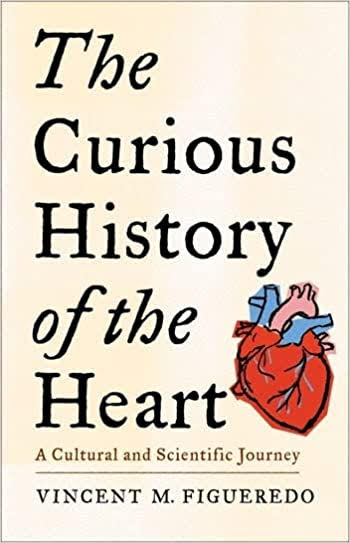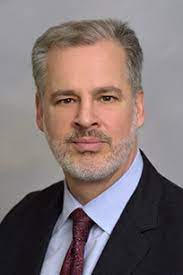Dr. Vincent M. Figueredo talks "The Curious History of the Heart." 2/12
Join us for our next Zoom lecture,"The Curious History of the Heart." Dr. Vincent M. Figueredo, will speak about the iconography and meaning of the heart throughout the ages and in our culture. Wharton Club members and guests are invited.


How did a single human organ, the heart, become the symbol of everything romantic? Why not the liver, or the big toe?
Join us for our next Zoom lecture,"The Curious History of the Heart." Dr. Vincent M. Figueredo, will speak about the iconography and meaning of the heart throughout the ages and in our culture. He will discuss the role of the heart in art, religion, philosophy, and science across time and place. A perfect event for the weekend before Valentine’s Day. Come with your sweetie! (More details below).
Date: February 12, 2023
Time: 3 PM EST
Place: Online on Zoom
Cost: Free
Guests and Members are welcome
For much of recorded history, people considered the heart to be the most important organ in the body. In cultures around the world, the heart―not the brain―was believed to be the location of intelligence, memory, emotion, and the soul.
Over time, views on the purpose of the heart have transformed as people sought to understand the life forces it contains. Modern medicine and science dismissed what was once the king of the organs as a mere blood pump subservient to the brain, yet the heart remains a potent symbol of love and health and an important part of our cultural iconography.
Vincent M. Figueredo―an accomplished cardiologist and expert on the history of the human heart― traces the evolution of our understanding of the heart from the dawn of civilization to the present. He will discuss the role and significance of the heart in art, culture, religion, philosophy, and science across time and place. He examines how the heart really works, its many meanings in our emotional and daily lives, and what cutting-edge science is teaching us about this remarkable organ.
Figueredo considers the science of heart disease and the emerging field of neurocardiology, which has found evidence of a “heart-brain connection” in mental and physical health, suggesting that ancient views hold more truth than moderns suspect.
Ranging widely and deeply throughout human history, He sheds new light on why the heart remains so central to our sense of self.

Click here to reserve your place for the program
Virtual Event Instructions:
Zoom URL for your own use will be listed in the email you receive after you register.
Click here to reserve your seat(s)
for the program
